
The overall vision is to extensively reduce the environmental waste from Life Science production in Sweden and eventually, globally. The goal is to utilize a Lean tool for operational environmental improvement work, developed by and for the manufacturing industry, adapt it to the Life Science business and test it in a pilot at AstraZeneca in Södertälje. To facilitate industrial commitment and application, the cost perspective is tested as the driving force and incentive for the green improvement/kaizen work.
If the project Cost Driven Green Kaizen is successful, the tool could be scaled up at the whole AstraZeneca site, and eventually become a Lean tool in the toolbox for systematic environmental improvement work. With a generic approach, the method could be used by the whole sector eventually. The project idea is considered interesting to the buiness in increasing the environmental sustainability. When tested, it could be teached at the engineering programs to increase the awareness.
The existing method, Green Performance Map (GPM), will be analyzed in terms of what should be modified to fit the new industry setting, and consequently adapted and tested in a pilot. An operations team will identify and prioritize environmental aspects within their work place under the guidance of experts in the project team and environmental and lean experts from AstraZeneca. The pilot will be evaluated and a plan for next step developed. The sustainability potential in terms of cost savings will be identified from shopfloor to factory level to enhance the use of the green kaizen method.
SeeCut focuses on cost-efficient production systems for secure collection, analysis, visualization, storage and sharing of production data. The project addresses the integration of new signals and sensors. For advanced products, like jet engine components, collecting data during manufacturing and usage is essential for quality assurance and remanufacturing. The project goals are to identify key technical requirements related to production data for use in digitalized value chains, define means to ease the run-time integration of new signals and data streams from manufacturing machinery and sensors, and define how to securely and cost-efficiently share data through the value chains in circular production.
2019 – 2019
2013 – 2016
2016 – 2016
2015 – 2015
2015 – 2016
2016 – 2018
2014 – 2017
2015 – 2016
2015 – 2016
RemProLife aims at improving the use of life-cycle information to achieve more efficient remanufacturing from economic and ecological perpectives.
2013 – 2016
2017 – 2018
Tooling constitutes a significant part in the economical investment of the hot stamping process. Significant benefits in production economy and environmental benefits can be attained by improving the tribological performance in hot forming operations of automotive components. The main idea of this project is to create tailored tool surfaces on dies made from cheaper and easier to manufacture tool steel for the hot stamping of ultra-high strength steels.
2015 – 2018
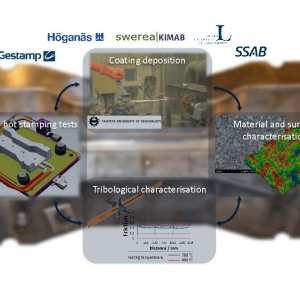
2013 – 2016

2017 – 2018
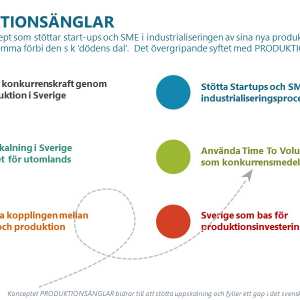
2015 – 2015
2017 – 2018
2017 – 2018
2014 – 2017
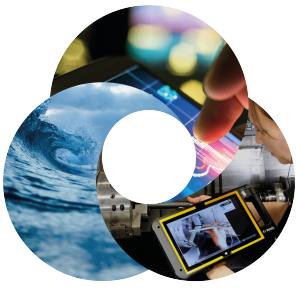
Reduced lead times and improved performance for tooling through innovative manufacturing and assembly strategies as well as optimised design enabled by use of additive manufacturing (AM).
2016 – 2018
2016 – 2019
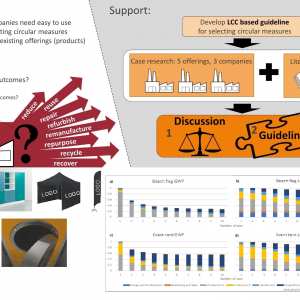
2015 – 2016
2014 – 2014
2017 – 2020
2016 – 2016
2016 – 2016
2014 – 2017
The SAPPA project is about innovative cloud-based predictive and preventive maintenance systems, improving availability of products and production systems.
2014 – 2016
Increased sustainability and cost effectiveness through improved strategic decision-making in production issues based on new metrics system for production and development.
2015 – 2017
Every manufacturing company measure and control production performance with a system of KPIs. The aim of the SMART-PM project is to investigate and demonstrate new ways of collecting data, transforming data to information and introducing new decision tools based on valid information and economic models of the production systems.
2018 – 2020
2015 – 2016
2016 – 2017
2013 – 2017
2016 – 2016
2017 – 2018
2015 – 2016
2017 – 2018
2013 – 2017
2015 – 2016
The project focuses on economic and environmental sustainability and increased industrial competitiveness.
2017 – 2018
2015 – 2016
2017 – 2020
2016 – 2018
2014 – 2017
2015 – 2016
2017 – 2018
2016 – 2017
With globalization and other megatrends as demographic changes and climate change, more knowledge is needed regarding production in an international perspective. PADOK Study Visit in India 2016 have given an increased knowledge regarding how production is conducted in India, some of the challenges producing companies in that region is facing and how Swedish companies interested in investing in production in India could act to establish themselves in the region.
2016 – 2016
2015 – 2016
2014 – 2018
2017 – 2018
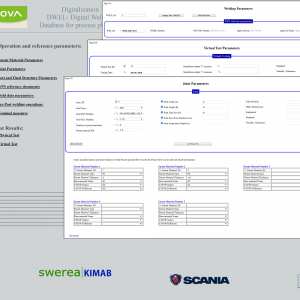
2014 – 2016
2015 – 2017
2017 – 2019
2015 – 2016
2015 – 2018
2014 – 2017
Development of a thermo-chemical test bed and implemenation of results for chosen processes and applications
2019 – 2022
2017 – 2021
2014 – 2017